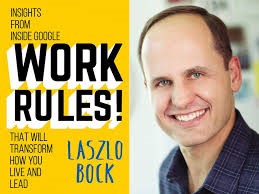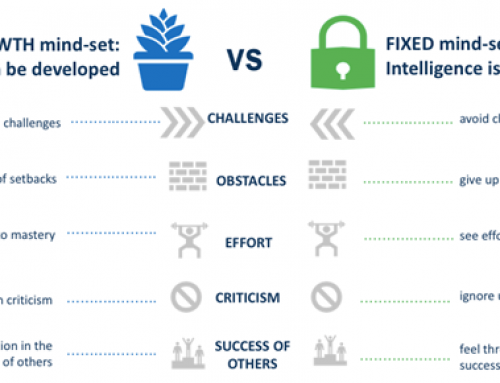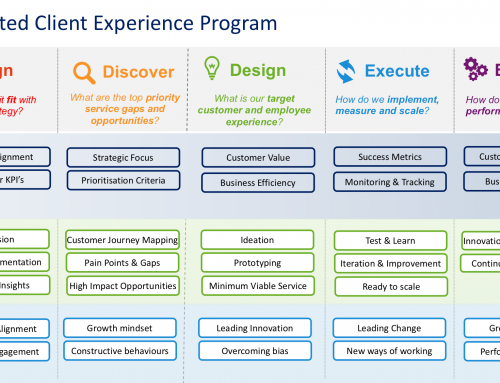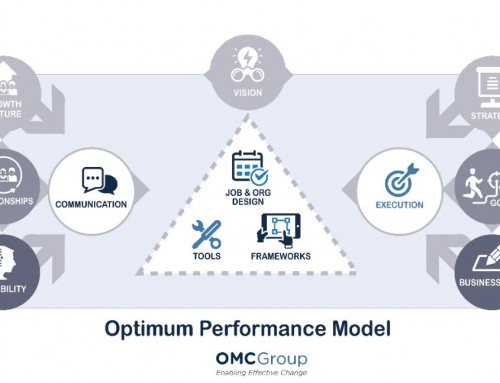‘Work Rules! Insights from inside Google that will transform how you live and lead’ Laszlo Bock
If you are like me, looking through a list of business related books doesn’t always result in overwhelming excitement, but ‘Work Rules’ isn’t your ordinary textbook. Google has been named ‘The Best Company to work for’ by Fortune magazine, five times in the USA and numerous times all over the world. According to LinkedIn Google is also ‘the most sought after place to work on the planet’ it is also a product of great interest as it is one I and most people utilise many times over everyday. I’m interested!
Not disappointed, Laszlo Bocks (the Senior Vice President of People operations), is inspiring in his approach, which he describes as stemming from his humble beginnings with a vast variety of job experiences. He claims his resume began as a Guidance counsellor’s nightmare, which includes a stint working in a Hamburger Shop. His inspiration began simply from his frustration that no matter what level, where or what industry he worked in, ‘no matter where he turned people were not treated better in their jobs’. His experience of work even from some of the best employers was that it was demotivating and dehumanising. He has since focused on changing this, and breaks down the various challenges.
Although the book does bring awe about Google as a workplace itself, as he outlines some of its dedication and amazingly well thought out strategies that it researches and implements in order to maintain its success. The book is more valuable on another level. Laszlo shares the insights and results of over 10years of research into workplace culture, first hand recounting challenges faced at keeping a rapidly expanding company (that has grown from 6000 to 60000 in ten years),successful, personable and maintaining a positive working environment. Using chapter titles such as ‘Culture eats strategy for Breakfast’, he relates how giving freedom to the people ‘will amaze’, talks about making missions that matter, how Google distinguishes their mission through simplicity, and also what it deliberately doesn’t talk about (such as profit or market). Laszlo emphasis that by making the mission about moral goals rather than business ones, they becomes more meaningful to people.
In another chapter, Let the inmates run the Asylum, Laszlo shares Googles approach to workplace culture and the high level of trust that they place in their staff (or Googlers), and talks about how ‘taking power from the managers and trusting people to run things’ empowers and benefits the organisation as a whole. He also discusses how Google tackles the challenges of making its people feel like owners rather than employees, recruitment strategies (and why not to trust your gut) and the processes they tested and trialled in order to maintain satisfaction in a large organisation. The first step in empowerment Laszlo points out is to make a safe environment, where people feel comfortable speaking up, he also discusses the benefits of eliminating status symbols and strategies in creating a non-hierarchical working environment (explaining why the CFO of Google rides around their campus on funky bikes ‘in jeans and an orange backpack, to show even the most senior leaders that we are just people).
Laszlo also talks about methods of recording human performance, the flaws of using traditional Guassian distribution(bell shaped) graph to plot staff performance, which he says results in most organisations ‘undervaluing and under-rewarding their best staff without even knowing it’. He discusses the preferred Power Law distribution curve, and how the concept of putting their ‘best people under the microscope’ evolved into the revered and much spoken about Google Oxygen Program. Through more than 10000 observations, research and data collection from over 10 years, the program identified the 8 principles that great managers do to make them great. He talks in depth about the implementation of the program and how google uses feedback surveys to provide a monitor and maintain its effectiveness.
A Great Read! The depth of the various strategies and events Laszlo recalls means it’s not necessarily a fast and easy read, but I found it inspiring. It points towards creating and maintaining a positive working environment of empowerment and transparency at all levels. Of course this is easier to implement in some sectors more than others, and Laszlo acknowledges it is ‘not all rainbows and unicorns’, not everything works out and that’s fine, just adapt and keep trying. And yes the free gourmet food, colourful beanbags and crazy offices where bikes ride through them sounds refreshing, but this book feels as though it gives you real insight into why Google stands out from the rest. What is also satisfying about Laszlo’s book is that it seems this is really the story of how he fulfilled his wish to make a difference to work culture, and the approaches he and his fellow have tried and tested. Each chapter concludes with three or four summary points, this is useful for revisiting and reviewing.
OMC Group would love to guide and help you bring these and other positive aspects into your work and life! We offer coaching, workshops and guidance and support for many aspects of day to day Workplace culture in many sectors. Please see our website www.omc-group.com.au or contact info@omc-group.com.au for more information.







Leave A Comment